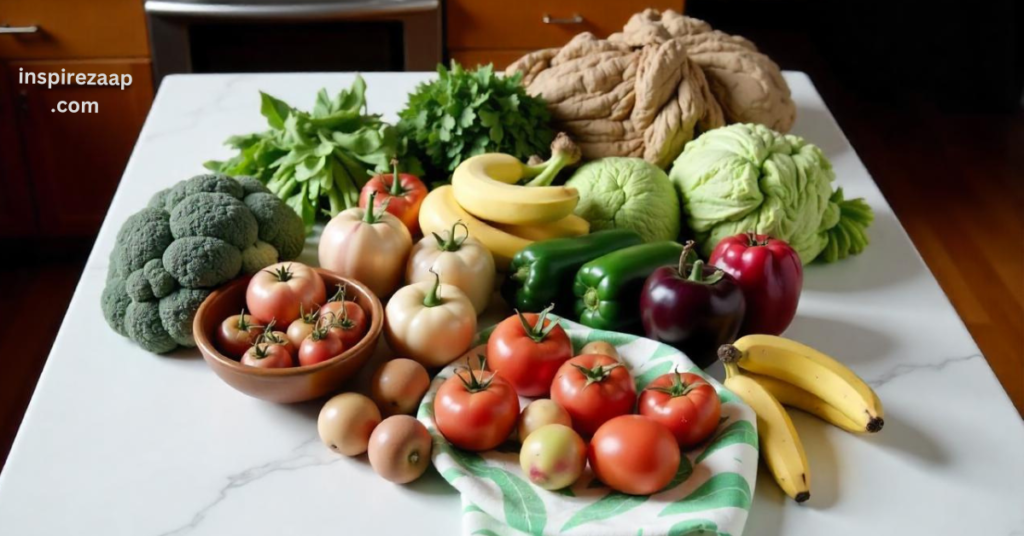Digestive health plays a crucial role in overall well-being, as the digestive system is responsible for breaking down food, absorbing nutrients, and eliminating waste. Poor digestion can lead to discomfort, nutrient deficiencies, and chronic health issues. While modern medicine offers solutions, natural remedies can provide gentle and effective ways to support your digestive health. Let’s explore some of the best natural approaches to maintain a healthy gut and improve digestion.
1. Eat a Fiber-Rich Diet
Fiber is essential for a healthy digestive system. It adds bulk to stools, making them easier to pass and helping prevent constipation. Soluble fiber, found in foods like oats, beans, and fruits, helps regulate blood sugar and cholesterol levels, while insoluble fiber, found in whole grains and vegetables, promotes regular bowel movements. Incorporating foods like broccoli, apples, chia seeds, and lentils into your diet can significantly improve your digestive health.
2. Stay Hydrated
Water is vital for digestion. It helps break down food, absorb nutrients, and soften stools, reducing the risk of constipation. Aim to drink at least 8–10 glasses of water daily, and consider hydrating foods like cucumbers, oranges, and watermelon to boost your intake. Avoid excessive caffeine and sugary beverages, which can disrupt digestion and dehydrate the body.
3. Probiotics for Gut Health
Probiotics are beneficial bacteria that support a healthy gut microbiome. A balanced microbiome aids in digestion, nutrient absorption, and immune function. Foods rich in probiotics include yogurt, kefir, sauerkraut, kimchi, and miso. If dietary options are limited, probiotic supplements can be a convenient alternative. Look for products containing strains like Lactobacillus and Bifidobacterium, which are known to improve digestive health.
4. Herbal Teas and Natural Aids
Certain herbal teas have long been used to soothe digestive discomfort:
- Ginger Tea: Ginger stimulates digestive enzymes and reduces inflammation, making it an excellent remedy for nausea and bloating.
- Peppermint Tea: Peppermint relaxes the digestive tract’s muscles, alleviating cramps and indigestion.
- Chamomile Tea: Chamomile is known for its calming properties, which can ease stomach pain and reduce stress-related digestive issues.
Other natural aids, such as fennel seeds and caraway seeds, can help relieve bloating and gas when consumed after meals.
5. Chew Your Food Thoroughly
Digestion begins in the mouth, where enzymes in saliva start breaking down food. Chewing thoroughly not only aids this process but also reduces the burden on the stomach and intestines. Take your time with meals, aiming to chew each bite 20–30 times. Mindful eating can also prevent overeating and improve overall digestive function.
6. Incorporate Digestive Enzymes
Digestive enzymes help break down food into absorbable nutrients. While your body naturally produces these enzymes, some people may benefit from supplementation, especially if they experience bloating or discomfort after meals. Pineapple (rich in bromelain) and papaya (containing papain) are natural sources of digestive enzymes that can enhance digestion.
7. Engage in Regular Physical Activity
Exercise improves blood flow to the digestive tract, supporting efficient digestion. Activities like walking, yoga, or swimming can stimulate intestinal movement and reduce the risk of constipation. Additionally, regular physical activity helps maintain a healthy weight, which is critical for digestive health.
8. Manage Stress Levels
Stress can wreak havoc on your digestive system, leading to issues like indigestion, acid reflux, or irritable bowel syndrome (IBS). Incorporate stress-reducing practices into your routine, such as meditation, deep breathing exercises, or spending time in nature. A calm mind promotes better digestion and overall health.
9. Avoid Overeating and Unhealthy Habits
Large meals can overwhelm your digestive system, leading to bloating and discomfort. Instead, opt for smaller, more frequent meals. Limit processed foods, fried items, and excessive sugar, as these can disrupt your gut microbiome and slow digestion. Avoid smoking and excessive alcohol consumption, which are known to irritate the digestive tract.
10. Listen to Your Body
Pay attention to your body’s signals. Persistent symptoms like bloating, abdominal pain, or changes in bowel habits may indicate underlying issues. While natural remedies can improve digestive health, consult a healthcare provider for persistent or severe symptoms.
Conclusion
A healthy digestive system is fundamental to overall health and well-being. By incorporating natural remedies like a fiber-rich diet, probiotics, herbal teas, and stress management into your lifestyle, you can support your gut and enjoy better digestion. Remember, small daily habits can make a big difference in maintaining a healthy digestive system and enhancing your quality of life.


